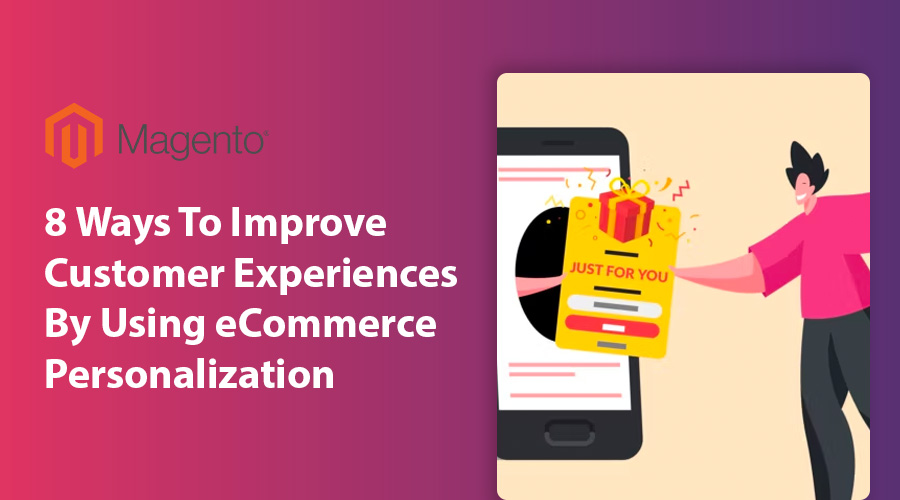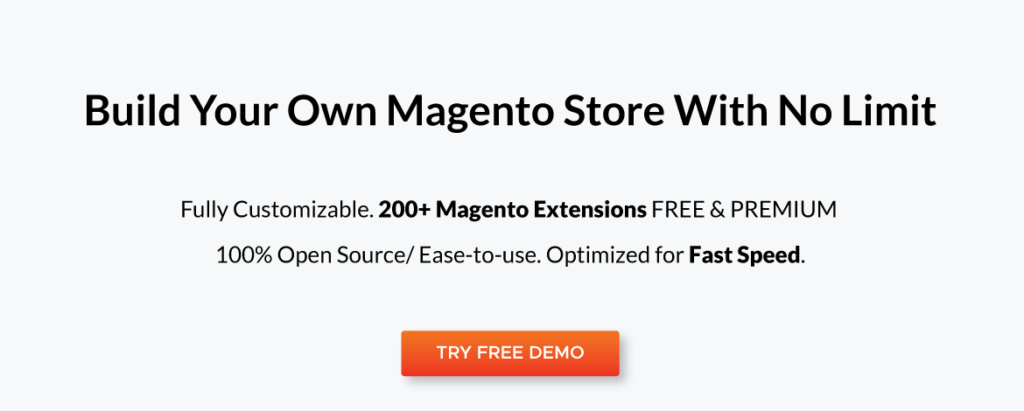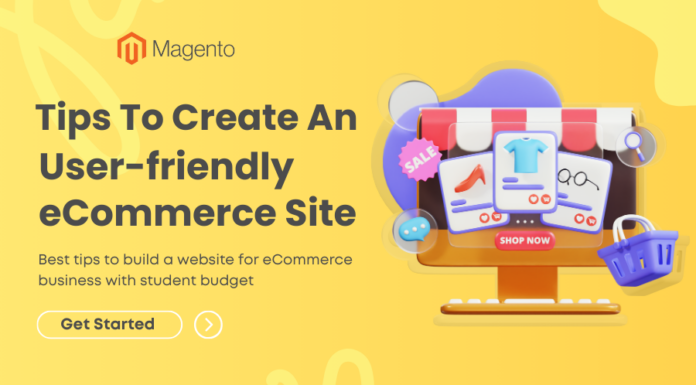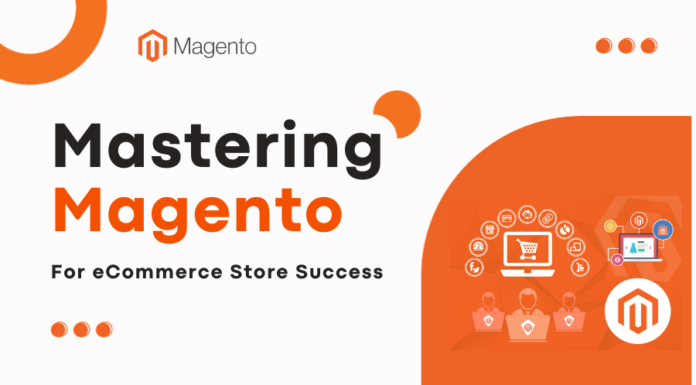
Shopping via eCommerce portals has become highly popular amongst retail consumers for convenience and ease of access. With the increase in demand for fast shopping and the decrease in patience for delivery times, more and more people are shifting toward eCommerce platforms for their day-to-day requirements.
These online businesses are becoming highly efficient for consumers to shop and get their hands on the different things they need. In short, eCommerce platforms are changing how consumers view an everyday shopping experience. And eCommerce personalization is one of the most important factors. However, are these sites much better than in-person stores?
Table of Contents
I. What are the Benefits of eCommerce Sites?
E-commerce sites provide a gateway for retailers and consumers to connect and bring convenience to different transactions. eCommerce sites have numerous benefits, which is why more and more businesses are looking to shift toward online marketing and selling. Let us look at a few of these benefits.
1.1 No Reach Limitations
There is no need for consumers to visit stores to buy the things they need physically. Thanks to advancements in technology, which include user-friendly websites and mobile app development, this not only saves on travel costs but also on time and the extra expenses that come with in-person shopping. Customers can explore various options, from electronics, mobiles, furniture, groceries, pet food, sports equipment, etc., all in one day, without leaving their couches. Consumers are only required to have a stable internet connection to access eCommerce platforms, and they can browse through different collections conveniently.
1.2 Cost-Effective
eCommerce platforms often offer consumers unique discounts that may not be available in physical stores. It is because, with the help of an online marketplace, customers can connect with various suppliers worldwide in just a couple of clicks. It allows avid shoppers to save costs on products they like, enabling them to buy more at a reasonable price. It is an efficient way for consumers to enjoy their shopping experience and make the most of other online sales and discounts.
1.3 Better Store & Product Listing
eCommerce platforms make numerous items available to consumers, giving them access to diverse commodities across geographies. Unlike a physical store that often sells a limited number of things, eCommerce platforms provide customers with different categories to shop from, bringing them an all-around shopping experience at their fingertips.
1.4 Flexibility for Customers
eCommerce platforms take on the responsibility of delivering all orders to the customer’s fingertips. Consumers can sit at home, order everything they need, and let the business handle the rest. They do not have to actively visit a store to shop, which is often time-consuming and tedious.
1.5 More Marketable Opportunities
eCommerce platforms may also offer consumers the option to sell some of their products. It is an excellent way to engage with small business owners looking to reach a broader audience base. It allows consumers and business owners to connect with new customers and market their products from within the platform. It also gives you a better chance of building trust with video reviews, as you’ll be able to post more lengthy testimonials directly to your website.
1.6 Global Shopping Opportunities
eCommerce platforms allow consumers to shop from global marketplaces and access inventories from different parts of the world. Physical stores may import items but will always have limited availability of what a consumer may want. With the help of eCommerce platforms, it becomes more convenient for customers to browse global shopping sites and improve their shopping experience.
1.7 Item-Saving
eCommerce platforms often provide consumers with an online shopping cart that they can use to store the items they are looking to purchase. Customers can save products and come back to them at any time. In a physical store, if a customer leaves the shop, there is a chance that the item may not be available again. It doesn’t happen as often on eCommerce platforms, giving consumers a relaxing and spaced-out shopping experience.
1.8 Product Updates
eCommerce websites often have online newsletters that customers can sign up for to receive product and shop updates. The information often gives exclusive insights, promotional codes, sale details, and other attention-grabbing news that consumers can use to improve their shopping experience. In-person stores do not always have this ability unless established for a long time. Hence, customers keen to keep themselves updated with the latest trends will deviate more toward eCommerce platforms.
II. eCommerce Personalization Platforms
If businesses can tap into different opportunities, they can provide consumers with an online shopping experience that is unique and eye-catching. But at the same time, they may not be able to provide an experience on a large scale that becomes possible with online shopping platforms. Most in-person stores have a personalized touch that may not be as readily available on eCommerce sites, which may lead to lower customer satisfaction.
The more a business pays to add personalization to its platform, the more chances it will have to connect with customers and build meaningful relationships. Hence, it becomes necessary for businesses to bring in better interactions and personalized experiences online to satisfy their consumers and increase their engagement. Small businesses or up-and-coming startups can use a detailed startup guide to know more about incorporating personalization into their eCommerce sites. Here’s a look at a few efficient personalization tips and techniques that make it possible.
III. 8 Ways eCommerce Personalization Can Lead to Satisfying Customer Experiences On Your Sites
3.1 Adding Signup Options
eCommerce websites may have consumers interested in promotional emails to keep up with the brand. Businesses should consider adding a signup option on their landing page with an encouraging tagline to excite customers to register for additional incentives such as exclusive discounts, mailing list previews, etc. When customers sign up, they can send personalized messages that catch their attention with other unique offers and encourage them to engage more with the business.
3.2 Using Newsletters
Newsletters are an excellent way to keep consumers engaged and interactive. eCommerce sites can use newsletters to send personalized messages to a select group of customers, such as regulars, subscribers, etc. Businesses can send them weekly, bi-weekly, or monthly, depending on which brings in the most customer interactions. It is a consistent way to keep up with customers and have them engaged with the latest happenings in the business.
3.3 Sending Out Promotional Codes
eCommerce sites can send users promotional codes with personalized messages. A simple text such as ” Hey_____, we have a fun offer for you” or something similar will catch a customer’s attention, and they will be more likely to interact with the site compared to others who do not receive any personalized experiences.
3.4 Personalized Product Recommendations
eCommerce sites should also consider giving their customers personalized recommendations when shopping on their sites. It could be based on any past purchase the consumer has made. Businesses can even send attention-grabbing notifications such as “Hi ___, we saw you liked this product, so why not check out this too?” and invite customers to browse the recommendations. It is an excellent way to enhance the shopping experience and satisfy consumers.
3.5 Include Personalized Product Education
eCommerce sites that deal with cosmetic or beauty products can have product education segments that cater to each customer. Businesses can include a short quiz to get to know a few details about a consumer and provide them with tailored product recommendations based on these details. It is helpful when looking for hair cream for weak hair, lotions for sensitive skin, and other such situations. It will allow consumers to engage more with the business when they know the products they are shopping for.
3.6 Use Shopping Cart Reminders
eCommerce can send reminder notifications if a customer abandons their cart, closes their tab, doesn’t use a coupon, etc. It will help maintain high interactions between the customer and the eCommerce site. Customers will also be encouraged to complete their shopping, thus leading to a fulfilling experience for all.
3.7 Personalize Website Homepage
After users sign up on an eCommerce website, businesses can personalize their landing page each time a particular customer visits their site. Pop-ups such as “Welcome back ______, would you like to continue where you left off?” or similar messages will lead to a higher engagement with customers on the site and provide them with higher satisfaction.
3.8 Include a Support Chat Option
It will be convenient for eCommerce sites to include customer chat support that they can use for any queries. It will allow them to receive instant solutions, thus leading to higher satisfaction for customers during their shopping experience.
IV. Benefits of Personalizing eCommerce Platforms
Bringing personalization to different eCommerce platforms gives businesses a better opportunity to connect with their consumers and build their audience. It is an efficient way to improve their growth in the industry and establish themselves as a powerful contender amongst the competition. Using personalization methods and techniques can benefit a business eCommerce platform significantly. Here’s a look at a few ways in which this is possible.
- Personalization allows businesses to engage directly with their customers and show them that the eCommerce platform is paying attention to what an individual wants. It allows businesses to implement methods that will bring in a human approach online and make the shopping experience more comfortable and relatable for all consumers.
- Using personalization also allows eCommerce platforms to improve their customer engagement on their website and other platforms of presence. When consumers have a satisfying and convenient experience, they will be more likely to engage more with the business, visit its social channels, give recommendations, etc., which are vital requirements for a platform’s growth.
- With the help of personalization, eCommerce platforms can provide consumers with a seamless and unique shopping experience that physical, in-person stores may not be able to provide. Businesses that take up personalization techniques will have better opportunities that will increase customer engagement and revenue as a result of a promising experience.
- Personalization also facilitates customer retention for eCommerce businesses. When customers are able to connect with the business and enjoy their shopping experience, they will more likely to become loyal and returning customers. Using different and suitable personalization techniques is an excellent way to enhance customer satisfaction which plays a significant role in retaining them for the long term.
- With the help of personalization, businesses can focus on improving the customer journey paths and make improvements that will encourage consumers to stay till the end. Different methods that provide rewarding and attention-grabbing details to consumers will encourage them to stay till the end of a purchase journey and get their hands on the things they need.
- Personalization also benefits the growth of a business amongst its competition. An eCommerce platform that showcases an interest in customer preferences and purchase patterns, will have the opportunity to improve its market goodwill. Having a reliable and trustworthy reputation is a key requirement for businesses and eCommerce platforms to flourish in the industry and stand out from their competition.
- Using different personalization methods also allows businesses to engage with a vast audience who have various requirements. These methods can appeal to people from different locations, who have mixed tastes and preferences, and encourage them to interact with the eCommerce platform and make a purchase. Personalization gives businesses the opportunity to connect and grow global audiences and higher engagement from multiple sources of interest.
- With the help of personalization, businesses can carry out operations in a way that will align with customer interests and invite them to become long-term paying customers. It allows eCommerce platforms to tailor their online services and websites and make them more appealing for a customer to use and navigate through for their shopping requirements.
V. Endnote
Personalization is an excellent way to connect with customers online and encourage them to become paying consumers. When an individual visits a business website, they are looking for a hassle-free, convenient, and straightforward shopping experience. Businesses that fail to provide this will not have a customer’s attention, leading to a loss of engagement. Hence, using different personalization techniques is crucial for different customer satisfaction needs.
When customers shop or engage with an eCommerce site, they look for an experience that stands out from in-person stores. They want the experience to be satisfying and unique from what they may have from regular stores. Hence, personalizing online shopping experiences is an excellent way for eCommerce sites to increase engagement and attract returning customers. When customers are happy with the knowledge, they will be more likely to become loyal to a particular brand, thus leading to better growth for the business in the long run.












![[SALE OFF] Discount 30% All Premium Extensions On Christmas And New Year 2025 christmas-and-new-year-2025](https://landofcoder.b-cdn.net/wp-content/uploads/2024/12/christmas-and-new-year-2025-1-218x150.png)






